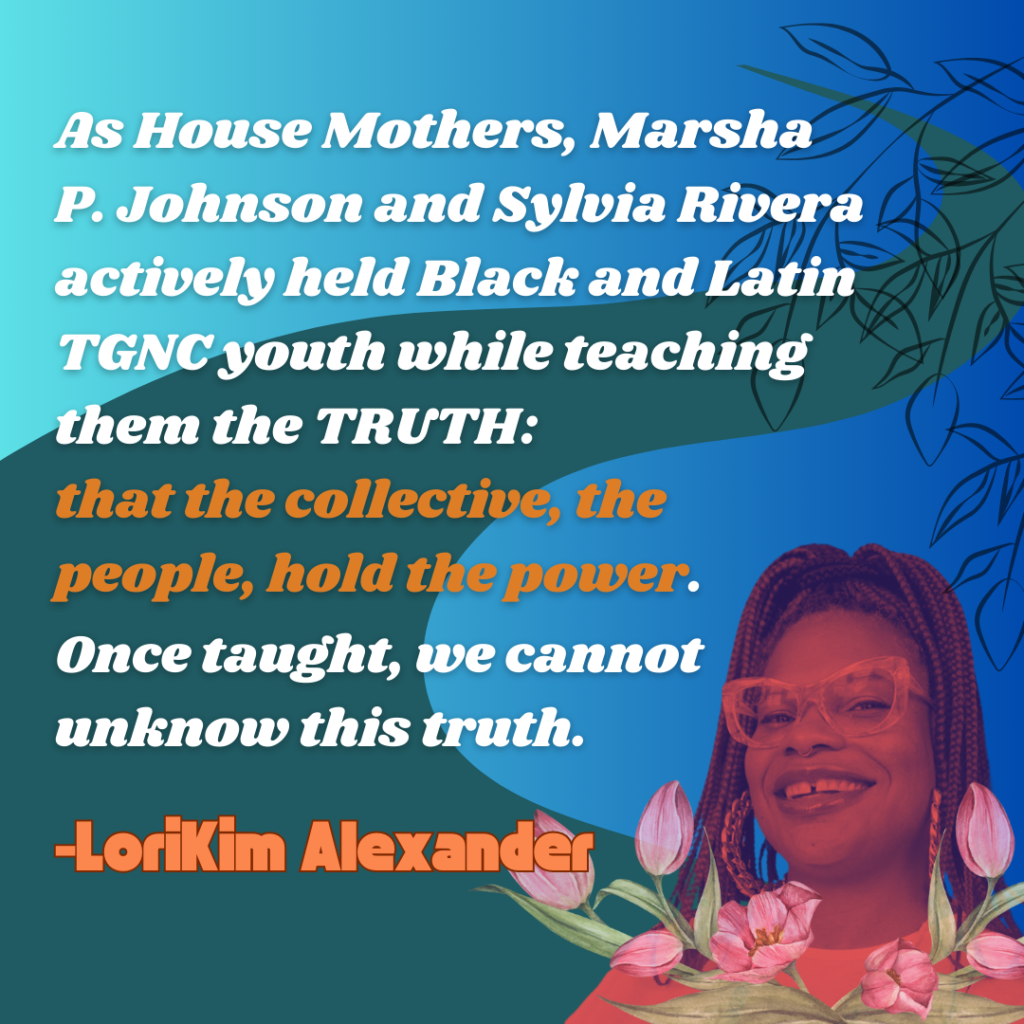
Defined: To build and maintain our community together and make our sibling’s problems our problems and to solve them together.
Invitation
You are worthy, beloved.
Without having to do anything else, know
that you are worthy.
Because you
are.
Worthy
Of joy
Of abundance
Of compassion
Of being seen
Worthy
Of being heard
Of care
Of trust
Of love
There can be so much grief
here in the places where we feel our unworthiness.
But this is where Queer alchemy does its work. The outcasts make homes in the cracks in a holy act of defiance. This Queer magic of home and place-making grounds our resistance and our relationships.
The material stratifications of our lives make it hard to live and work together. Race, class, gender, patriarchy, whiteness – these phenomena are constantly telling us that we are better off by ourselves, on our islands. This is how we should strive to live our lives: to prove our independence and our worth.

Over here on the side of liberation, we say no.
We believe that only we can save us! History has shown us time and time… and time again that the state and its many institutional apparatuses would sooner watch us die than give us what we need to thrive. Holding this truth at the center of our collective work is crucial.
This is our collective work: To reduce the risk of systemic, economic, and social harms that would impede all marginalized beings from living abundant and dignified lives. When we say all marginalized beings, we are speaking not just along the lines of the social oppression that we face as humans, but also the eco-terrorism and extraction faced by other animals and the Land.
None can save us but ourselves.
We remember the example of organizations like STARR (Strategic Trans Alliance for Radical Reform) that understand that in order to mobilize a revolution, the immediate material needs of the people must be addressed. Marsha P. Johnson and Sylvia Rivera began a legacy of community organizing that addressed housing insecurity and food apartheid, while also providing mutual aid. As House Mothers they actively held Black and Latin TGNC youth while teaching them the truth that the collective, the people, hold the power. Once taught, we cannot unknow this truth.
We remember the example of Caribbean and African Susus, a microfinance strategy thought to have begun in Nigeria and later spreading to Ghana and over time, throughout the Diaspora whereby members pool their money and redistribute it.
We remember the examples of the women living in the Gullah/Geechee communities of South Carolina and the Georgia Sea Islands, known as the Combahee River Colony, “who occupied abandoned farmland, grew crops, and took care of one another while their husbands went off to join the Union Army during the Civil War.”*
We remember the example of New Communities Land Trust, a farm collective owned in common by Black farmers that worked collaboratively with groups like SNCC (Student Nonviolent Coordinating Committee) and the Federation of Southern Cooperatives to create a plan for collective land ownership and cooperative farm leases and became the largest Black-owned property at 5700 acres.

Care Reflection
How do we acknowledge and address our needs together?
🫶🏾✨Resources
1. (Book) Jessica Gordon Nembhard, Collective Courage: A History of African American Cooperative Economics, Thought, and Practice
2. (Online Resource) Dara Cooper, Reframing Food Hubs: FOOD HUBS, RACIAL EQUITY, AND SELF-DETERMINATION IN THE SOUTH
* Jessica Gordon Nembhard, Collective Courage: A History of African American Cooperative Economics, Thought, and Practice
-Images & Writing By Vic Collins
